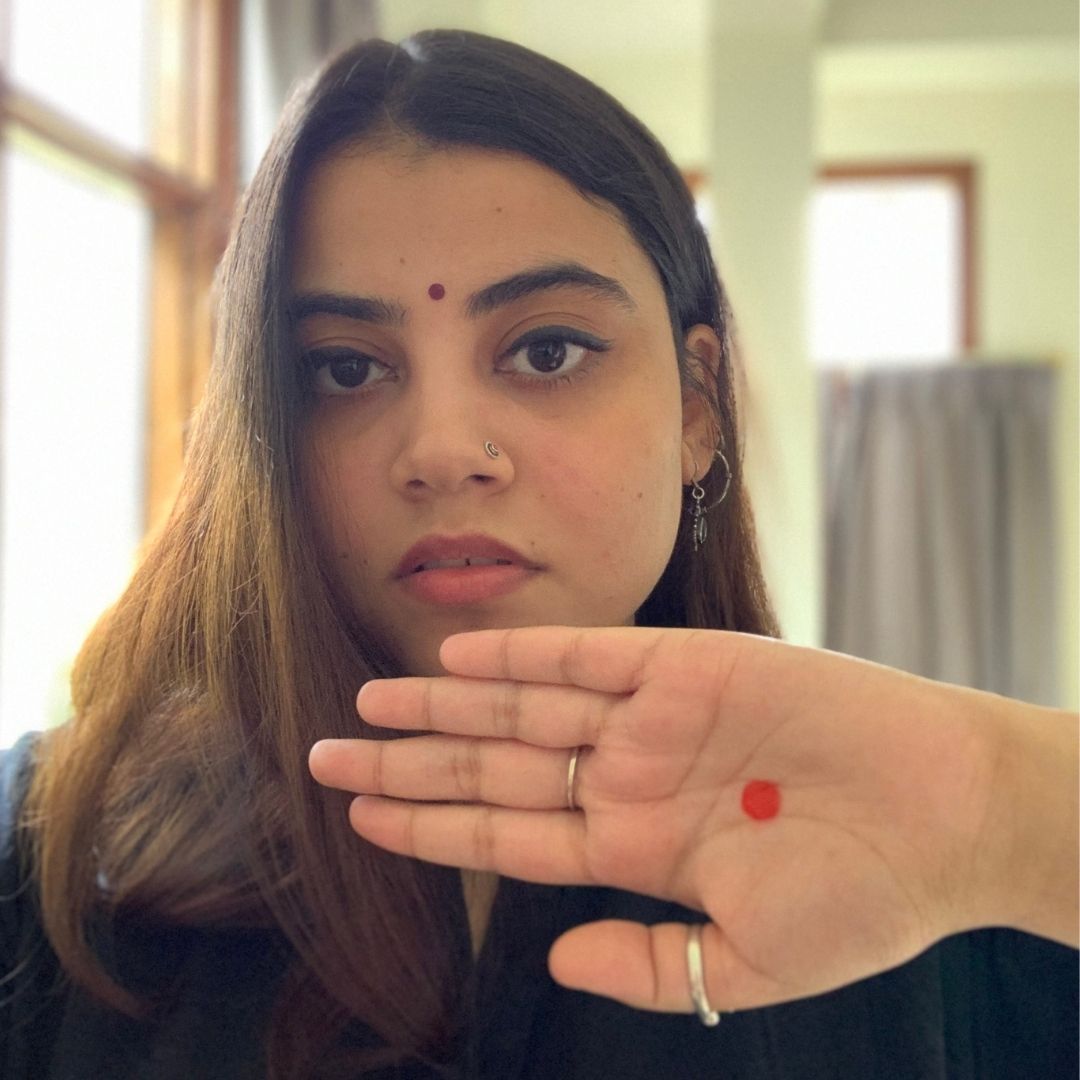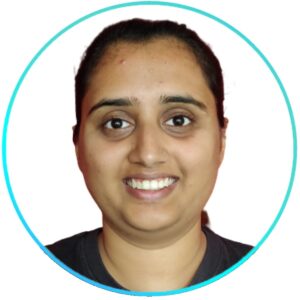I was just 11 years old when I was diagnosed with Polycystic Ovary Syndrome (PCOS). Back then, I was told by my doctors that this will have serious consequences when I grow up as I may not be able to get pregnant. I was very young at that time, therefore all of this did not really matter to me. I studied in a boarding school in Dehradun called Welham Girls’ School. There, my vice principal got me interested in Anthropology, which eventually played an indirect role in what I do today.
After passing out of school, I applied to Delhi University. I got admission to Hansraj College, the only institute that offered this subject. A large part of my curriculum is fieldwork. I did not have any specific kind of job in mind. Whatever came my way, I took it with both hands. It was then when I got the opportunity to work on a Corporate Social Responsibility (CSR) project for an automobile company that focussed on menstrual health. As I made inroads, I was made the co-head of the project in no time, because of my fieldwork expertise.
The project was four months long. The more I dwelled into it, the stronger connection I felt with this endeavour. I was being exposed to the obvious informational gap about menstrual health within the communities I worked with. This reflected on me personally as well because I did not have intricate knowledge about the topic, despite being privileged enough to have access to information and necessary resources.
This thought stayed with me even after completing my fieldwork. I knew more work had to be done in this area. Our project revolved around the data collected from 500 people, but, in reality, the number was larger than this.
Not just the informational gap, the inadequate diagnosis, and treatment also played a part. During this time, I experienced terrible pain for which I went to my gynaecologist. I was told that I had a Urinary Tract Infection (UTI). A common yet painful problem, I was shamed by my doctors as they made me feel that this was all because of me. They did not even bother to ask about my sexual history, as they felt that it will be controversial to talk about looking at my age then. This triggered my anxiety and proved disastrous for my mental health.
I Am Not The Only One
All of these thoughts kept tugging at my brain. It made me realise that I am not alone and there are many around me who go through the same issue each and every day. It also proved that something as basic as menstrual health, along with sex education, is still a taboo. Not many want to indulge in conversations revolving around the same. I wanted to change this perception.
The problem was glaring at me and I wanted to be a part of the solution. There should be no reservations when it comes to talking about our sexual health, irrespective of our age, gender, and our marital status. This was what gave me the impetus to come up with ‘Taarini Foundation’ that helped bridge the information gap in rural, urban and semi-urban communities around the country. In 2018, this foundation came into existence. What I had envisioned was coming to life slowly and steadily and it made me happy.
Our initial work involved raising awareness in the ambits of sexual, reproductive, and menstrual health. We advocate for ‘sustainable menstruation’ in a really big way. We have held workshops on several levels where we teach the stakeholders how to make reusable cloth pads. Along with that, we teach the communities micro-marketing techniques that help women become self-entrepreneurs to sell these products within their groups and build a greater reach about the same. All of this comes under our pet project ‘Mahina’. The term ‘Mahina’ is a colloquial lingo used for periods in Northern India.
I did not want to restrict ourselves in one field. As and when an opportunity came our way, we took it up and it resulted in the organisation evolving over the years. During COVID-19, we shifted our work online. The internet has immense power when it comes to spreading any kind of information. Therefore, the online session only quadrupled our reach across several platforms.
Still Work In Progress
Our focus was not just on menstrual health. The foundation’s page on Instagram also focussed on responsible sex education that talked about safe sex, contraceptives, and how sex is not just for reproduction. I have seen a rise in such pages on several social media accounts, that has made us into a small and supportive community of sexual health advocates and educators.
In the age of influencers, we want to tell the people that we are educators that use viral trends online to our advantage and raise awareness about what is necessary.
Despite the advent of such outlets, there is a knowledge gap that needs to be bridged. For me, sexual health is everything starting from sexuality, safe sex, contraceptives, but also includes menstrual and reproductive health. I don’t think these are distinct topics as it is a part of the larger conversation. When I say menstrual health, I do want to include sexual health as well and vice versa.
Even today, people fail to understand the difference in the fact that sex is not just equal to reproduction. Sex is also considered to be controversial. When our page used to post about menstruation, the pushback was much less. However, it increased when we branched out to the latter. That did not stop us from raising awareness and making people understand that all of this is extremely normal.
Over time, we have also worked towards giving space necessary for conversations involving LGBTQIA+ in this ambit. The theories and aspects surrounding it has been there for a very long time. I feel they should be a part of the normal conversation but, due to structural gaps in our society, it has not become a part.
The Queer Movement has always intertwined with the feminist movement over the years. However, the patriarchal norms have only catered to just one gender. As a person, I have allowed myself and given myself more access to information in this regard. Each and every day, I learn more about them. Within our educator group, we raise questions and share information about the community that only makes us more accepting. The training that we got was extremely heteronormative, as our teachers and medical professionals did not include non-binary theory in their discourse. Whether normal or intentional, the multiplicity in gender is not talked about at all.
A lot of our methods now are self-taught as well as learning from our own mistakes. We create information that is inclusive, which means that it should cater to each and every person, irrespective of sexuality or gender. We give space to groups and individuals who are queer affirmative to come and raise awareness about topics pertaining to them. Even today, it is a learning process for me as it is nothing but a work in progress.
If you too have an inspiring story to tell the world, send us your story at mystory@thelogicalindian.com












